#2013 Conclave
Explore tagged Tumblr posts
Note
If you had to bet everything right now, who do you think will be the next pope?
I've studied the papacy and papal conclaves enough to know the old saying that "He who enters the conclave as pope, leaves it as a cardinal" and that the most prominent papabili usually don't get elected.
However, Joseph Ratzinger was the heavy favorite going into the 2005 Conclave following Pope John Paul II's death and he was quickly elected. In the 2013 Conclave following Pope Benedict XVI's resignation, Jorge Bergoglio was a surprising choice as Pope Francis to most people outside of the Vatican, but he had been the runner-up to Ratzinger in 2005, so he wasn't that big of a shocker.
The novemdiales have just started, the public viewing of Pope Francis hasn't begun yet, and the College of Cardinals are just now making its way to Rome for the funeral and pre-conclave congregations, so a lot can happen in the next two weeks. But for several years now, I have felt that Cardinal Luis Antonio Tagle of the Philippines would be the successor to Pope Francis. I still strongly believe that he's going to be the choice, even though many outlets have him as the front-runner (which, again, is traditionally considered a bad sign for their chances in the conclave). At 67, Tagle is not too old and not too young, so he's kind of in the sweet spot when it comes to age range for Popes. He's considered the "Asian Francis", so he would seemingly continue with the direction of the church as intended by Francis over the past 12 years. He's from an area of the world that the church, under Francis, has focused significant energy on promoting Catholicism in a relatively young, growing population. And he's incredibly charismatic. I'd put my money on him.
Some observers have suggested that the College of Cardinals is going to take this as an opportunity to elect a more conservative pope who will reverse the more progressive form of Catholicism espoused by Pope Francis since 2013. But understand this: there are 135 cardinals eligible to vote in this conclave and Pope Francis chose 108 of them (only cardinals who have not yet reached the age of 80 years old are eligible to cast votes in the conclave). Many are from diverse, often remote, parts of the world that have never before been represented by a cardinal and most of them are aligned with the pastoral perspective of Francis. Through his appointments to the College of Cardinals, Francis reshaped the church's leadership to help him reform the Roman Curia and govern the church -- but also to forge the generation of ecclesiastical leadership that follows him, and not only do I think they will elect Cardinal Tagle to succeed him but I think we'll see white smoke from the Sistine Chapel pretty quickly once the conclave begins.
#Pope Francis#Papabile#Papabili#Popes#Papacy#2025 Conclave#Conclave of 2025#Papal Conclave#Papal Election#2013 Conclave#Conclave of 2013#2005 Conclave#Conclave of 2005#Conclave#College of Cardinals#Catholic Church#Luis Antonio Tagle#Cardinal Tagle#Cardinal Luis Antonio Tagle#Election of Pope Benedict XVI#Election of Pope Francis#Death of Pope Francis
203 notes
·
View notes
Text
January 29, 2024 - From the Handbook of God the Father (Volumes 2-3) - Special Commentary - Papal Prophecies - By A Soul - MaryRefugeOfSouls
DOWNLOAD THIS SPECIAL COMMENTARY (4 Pages PDF):https://handbookfaith.files.wordpress.com/2024/01/special-commentary-handbook-vols-2-3-antipope-special-conclave-great-ecumenical-council.pdf January 29, 2024For the Greater Glory of Almighty God Blessings beloved ones, This is my follow-up commentary about the recent publication of the very detailed Table of Contents of Volumes 2 and 3 for the…
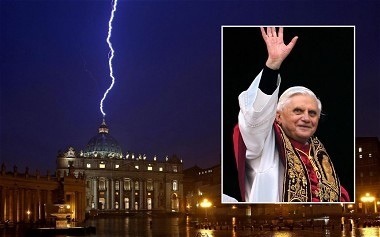
View On WordPress
#2013 Conclave#antipope#apostasy#Book of Truth#Catechism#Catholic#Christian#Christianity#confusion#Consecration of Russia#faith#false prophet#Fatima#Fatima Pope#God#God the Father#Great Ecumenical Council#Handbook of God the Father#hell#heresy#illumination of conscience#Inspirational#Israel#Jesus Christ#Jews#Maria Divine Mercy#martyrdom#MaryRefugeOfSouls#Mother Mary#orthodox
0 notes
Note
this is my first conclave and lowkey its so entertaining
You weren't born in 2013?
I never really paid much attention it but I have it like vaguely in my consciousness. Moreso the 2005 one than the 2013 one
45 notes
·
View notes
Text

•
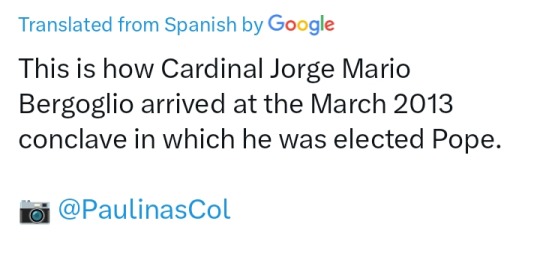

#pope francis#pope#holy see#vatican#conclave#conclave 2013#cardinal jorge mario bergoglio#papacy#argentina#st peter's basilica#st peter's square#papal funeral#papal funeral rites
25 notes
·
View notes
Text
I went a special kind of crazy yesterday lol
#you have to understand. the only other time I was super aware of a conclave was in 2013#and that was both sad because Benedict XVI’s resignation was such a shock#and also just less momentous because we’d just had two dynamite popes. that’s all we knew.#so we assumed we could simply count on more of the same#whereas now there’s all this anxiety and hope and excitement#I was SO full of adrenaline just because of new pope and all the questions and possibilities that entails#and now new AMERICAN pope????????#think about what JPII’s election meant for Poland!!!!! think about the historical impact it had!!#God please!!!!!!!!!!!!!!!!!!!
18 notes
·
View notes
Text
Blast from the past - a bit of humour from the 2013 conclave.

#2013 conclave throwback#2025 papal conclave#papal conclave 2025#conclave 2025#2025 conclave#electing the pope#papal election#seagull#humour
3 notes
·
View notes
Text
ewtn is SO fucking funny for spending a whole hour of their interregnum coverage talking about politics and then in quite literally the last sixty seconds of the segment saying "it's not about a horse race! it's a prayerful moment!" my brothers in christ YOU were talking about the papability of the italian cardinals 😭
#em conks the clave#← 2025 conclave liveposting tag because i am only human and i didn't have tumblr in 2013. block it now
5 notes
·
View notes
Text

You’re not wrong about that; it was certainly an interesting experience walking among all that history every day.

#I was there during the last conclave in 2013#which was a wild experience#I genuinely don’t think I would have been as involved this time if it hadn’t been for that experience
103K notes
·
View notes
Text
Leading Candidates The Next Pope: Who Are The Frontrunners to Succeed Pope Francis?
Source
Luis Antonio Tagle (Philippines)
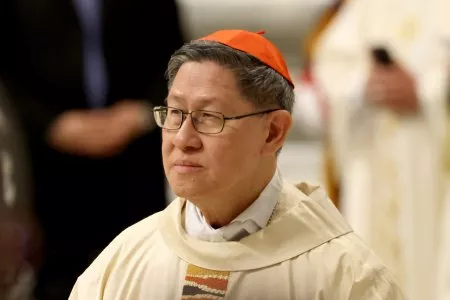
Currently the betting favorite at 3:1 odds, Cardinal Luis Antonio Tagle, 67, is considered a strong contender to continue Pope Francis's progressive agenda.
Tagle, an advocate for inclusion and evangelization, has significant experience leading the Congregation for the Evangelization of Peoples and was a trusted figure in Francis's inner circle.
AN: upon further research he heavily opposes abortion and same sex marriage
Pietro Parolin (Italy)
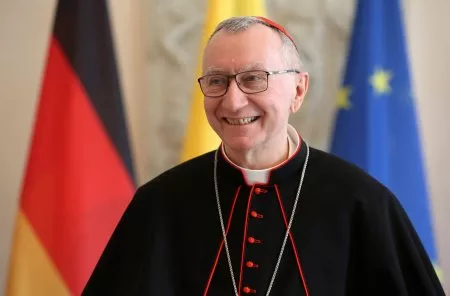
At 4:1 odds, Cardinal Pietro Parolin, 70, is one of the most experienced Vatican officials. In his role as the Vatican's Secretary of State since 2013, he has played a major part in diplomatic affairs, including sensitive negotiations with China and Middle Eastern governments.
Parolin is seen as a moderate theological candidate, someone who could provide stability while still maintaining some of Francis's reforms. His deep ties to Vatican bureaucracy make him a strong contender for those who favor continuity.
Peter Turkson (Ghana)
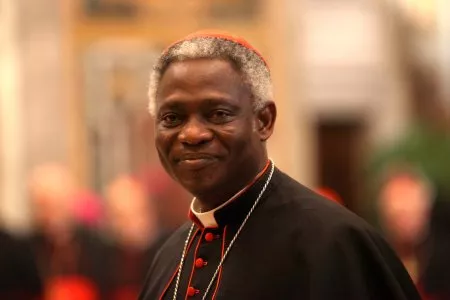
Currently at 5:1 odds in betting markets, Cardinal Peter Turkson, 76, is a well-known figure in the Church's social justice circles. As former head of the Dicastery for Promoting Integral Human Development, Turkson has been vocal on issues such as climate change, poverty and economic justice.
Turkson's election would mark a historic moment as the first African pope in centuries. The most recent African pontiff was Pope Gelasius, who served from 492 to 496 AD. Born in Rome to African parents, Gelasius was known for his extensive theological writings and strong advocacy for charity and justice for the poor.
Peter Erdő (Hungary)
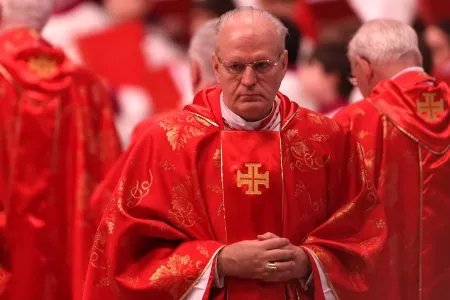
A leading conservative candidate, Cardinal Peter Erdő, 72, is currently at 6:1 odds. A respected canon law scholar, Erdő has been a strong advocate for traditional Catholic teachings and doctrine. He previously served as head of the Council of European Bishops' Conferences and has emphasized theological orthodoxy.
For those seeking a return to the conservatism of John Paul II and Benedict XVI, Erdő would represent a major shift away from Francis's approach.
Angelo Scola (Italy)
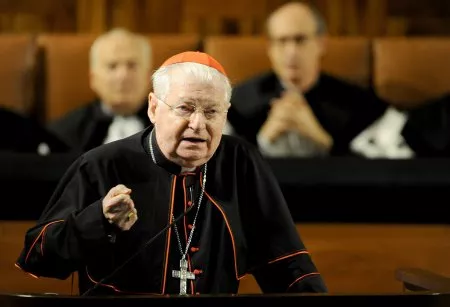
At 8:1, Cardinal Angelo Scola, 82, is a long-standing papal contender. He was among the favorites in the 2013 conclave that ultimately elected Pope Francis. Scola, a former Archbishop of Milan, has deep theological roots and appeals to those who support a more centralized and hierarchical Church.
His traditionalist stance makes him a strong candidate for those looking to pivot away from Francis's reforms, but his age may work against him.
1K notes
·
View notes
Note
i watched conclave and now I really want to know more about all the drama with cardinals, how do you find out about that kind of stuff?
Ohhhh boy. Where to even begin?
Well, to start with, a lot of the cardinals in Conclave are based on real people! Bellini is obviously Carlo Maria Martini (right down to having a surname that's a mixed drink), especially in the book, where he's apparently Italian rather than Italian-American (I love that, unlike with Lawrence, who's also Italian in the book,* they didn't change his name; Stanley Tucci is eminently capable of playing an ItAm guy named Aldo Bellini <3). Martini was a "liberal" Archbishop of Milan who for much of the 90s was widely expected to succeed Pope John Paul II but ended up stalling out at the 2005 conclave.** Tedesco has a lot in common with Raymond Burke, an archconservative cardinal who's still alive and very vocal in the media, although Burke, conversely, is American rather than Italian. (America unfortunately has a very conservative local Catholic Church in general these days.) Tedesco and Burke even look similar, right down to the campy, "muffled sounds of 'Good Luck, Babe!' playing in the distance" fashion sense and body language. Tremblay has a similar career trajectory to Marc Ouellet, who, like Tremblay, was widely respected and seen as pretty middle-of-the-road until serious scandals started coming out. Adeyemi doesn't seem to be based on or inspired by any one real person, but the virulent homophobe who isn't that reactionary otherwise is a very common type of sub-Saharan African cardinal, perhaps most prominently represented currently by Fridolin Ambongo Besungu. Like with Adeyemi, I can see Ambongo picking up steam but then imploding over the course of the next IRL conclave, although it would be uncharitable to Ambongo to assume it would be for the same reasons. And so on.
(Benitez is an ideal, rather than someone inspired by a real person or ideological type, but there are cardinals who've had similarly high-stress and altruistic career and life trajectories, like Marco Zenari, Pierbattista Pizzaballa (which is seriously his name),*** and, in fairness to him, also Ambongo, who is Congolese and is regularly physically threatened by political and paramilitary forces within the DRC.)
As to how one learns more about this, you could start by setting news alerts for some of these people's names--Matteo Zuppi, Luis Antonio Tagle, Pietro Parolin, Peter Erdo, and Victor Manuel Fernandez are other names to potentially watch--or reading some books that have been written recently about the current politics of the Church, the Curia, and the Francis papacy. There's one called In the Closet of the Vatican that is incredibly scurrilous, as its title would suggest, but a rip-roaring read if you're not too concerned about forming possibly-unfair negative opinions of some of these guys. There are also writers like Austen Ivereigh and (gag) Edward Pentin who've made whole careers of being Vatican Inside Baseball Understanders, especially since Pope Francis was elected in 2013.****
In general I'd say Conclave is a very good representation of the way these people think and act, especially the constant tension between venal ambition and genuine belief that they are participating in a divine agency in the world. The tendency in non-Catholic and even some Catholic circles is to assume that only the former is present, but people are complicated.
I hope some of this helps, anon!
*I looked it up and in the book he's called Jacopo Lomeli. I've never seen this surname before, but apparently some real people do have it.
**The Catholic Church has its own ideological spectrum and there are ways in which liberal, progressive, conservative, etc. are not very useful terms, but for broad purposes they work here.
***Patriarch of Jerusalem, the only Palestinian cardinal (cardinals are counted as "from" the countries that they lived in when they became cardinals, not necessarily the countries they're from originally; in his case his country of origin is, unsurprisingly, Italy). As you might imagine, he's been in religious news a lot lately.
****Francis, or Jorge Mario Bergoglio as he was then, is widely believed to have been the runner-up at the above-mentioned 2005 conclave, which produced Pope Benedict XVI.
584 notes
·
View notes
Text










THE BORGIAS (2011 - 2013) by Neil Jordan THE BORGIA BROTHERS ↴ cheating in conclave to secure their father's election as pope
"My dear sons, To Cardinals Versucci, Piccolomini, and Sanso, grants of titles and benefices from the Borgia abbeys, monasteries, and bishoprics."
#they were such dorks together it's sad the show didn't milk francois and david's chemistry much ngl#rodrigo borgia#cesare borgia#juan borgia#the borgias#theborgiasedit#david oakes#perioddramaedit#perioddramasource#dailyflicks#tvedit#tvarchive#cinemapix#tvgifs#fyeahtv#cinematv#tvfilmsource#filmtvdaily#filmtvcentral#filmtvedit#tvfilmdaily#televisiongifs#filmtvtoday#dailytvgifs#usersource#userstream#usertelevision#usersole#conclave#by jen
153 notes
·
View notes
Text
"Vocabor Franciscus. "I will be called Francis." It was a breathtaking choice. Because no pope had ever taken the name, it needed no Roman numerals but stood stark and simple...No one ever thought a pope could be called Francis; it would be like taking the name Peter, or Jesus. They were one of a kind.
"I was astonished at the boldness of it, because the name Francis is a whole program of governance in miniature," the Vatican commentator John Allen told Boston Radio. "He is this iconic figure in the Catholic imagination that awakens images of the antithesis of the institutional church...That's an awful lot of weight to put on your shoulders right out of the gate. If you're not prepared to walk that talk, then you're going to be in real trouble."
Bergoglio had walked that talk over a lifetime. Right now it mostly meant saying no, like keeping his old black shoes, his silver pectoral cross (a pope's is normally gold), and his faithful black plastic watch, or refusing the limousine waiting to take him back to the guesthouse for dinner ("May God forgive you for what you have done," he joked with the cardinals [who had just elected him]). After Mass with the cardinals the next day, he left the Vatican in a Ford Focus -- the security guards had better cars than the pope -- to pray at the shrine of Saint Mary Major, returning via the priests' hostel where he had stayed before the conclave. There he collected his bag, paid his bill to a shocked clerk ("I checked in under another name" was the caption on a widely tweeted photo), and chatted and joked with staff. There wasn't much to collect. He had been washing his clothes at night, letting them dry on the radiator...
...It was lots of those little things. They weren't mere gestures, nor were they calculated messages. They flowed from his identification with the Christ of the Gospels..."We must learn to be normal!" he told his Jesuit interviewer, Father Antonio Spadaro, in August that year, and he put it into practice, collecting his tray of food in the Santa Marta dining room like anyone else, making his own phone calls and many of his appointments, keeping his own diary, and making visits -- always in the blue Ford Focus, without any kind of entourage -- to parishes and charities around Rome, to spend time with the old and the homeless and the foreign-born.
Stories of Francis's personal kindness, impossible to verify, began to make their rounds, like the time he left his room to find a Swiss Guard standing outside his door and brought him a chair. "But Holy Father, I cannot sit down. My boss does not allow it," the guard told him. "Well, I'm the boss of your boss, and I say it's fine," Francis told him, before going back inside to fetch him the Italian equivalent of a Twinkie...
...Francis has become the most accessible of modern popes, almost always to be found at lunchtime in the Santa Marta restaurant, where he has his own table set aside, but stands in the queue with his tray like everyone else. Visitors report that he comes out of the Santa Marta to greet them personally, while hostel guests are often shocked to find that when elevator doors open the pope steps in ("I don't bite," he reassures them)."
-- Austen Ivereigh, on how different Pope Francis was from his monarchical predecessors and how shocking it was at the Vatican immediately following his election at the 2013 Conclave when Francis decided to live in a simple room at the Vatican's guesthouse instead of the luxurious papal apartments in the Apostolic Palace, in the 2014 book, The Great Reformer: Francis and the Making of a Radical Pope (BOOK | KINDLE | AUDIO)
#Pope Francis#Jorge Bergoglio#Popes#Papacy#Death of Pope Francis#Books About Pope Francis#Pope Francis Books#The Great Reformer: Francis and the Making of a Radical Pope#The Great Reformer#Austen Ivereigh
440 notes
·
View notes
Text
What movie to watch based on your favourite Conclave (2024) character during the real Conclave:
Thomas Lawrence - Winter Light (1963)

A tragic film about a preacher who feels abandoned by God and who fails to serve his parish in the way he wants to. Main character is also named Thomas. If you want something more modern with the same plot check out First Reformed (2017).
Vincent Benítez - The Shoes Of The Fisherman (1968)

Classic story about a priest in a warzone who becomes pope.
Joseph Tremblay - The Devils (1971)

Previously banned horror movie about the corruption of the clergy and their descent to madness.
Aldo Bellini - The Gospel According to Matthew (1964)

Lovely movie based on the gospel of Matthew directed by a gay man.
Joshua Adeyemi - Paradise: Faith (2012)

The story of a hypocritical Catholic woman who receives the visit of her Muslim ex-husband and has to confront the sins of her past.
Sister Agnes - Ida (2013)

A novice uncovers a family secret. If you want a classic nun movie you might be inclined to check out A Nun's Story (1959) or The Bells of St Mary (1945) if you would like to see Isabella Rosselini's mom, Ingrid Bergman, as a nun.
Raymond O'Malley - Habemus Papam (2011)

A light hearted comedy about a newly elected pope with anxiety attacks that features the funniest and most heartwarming scene of a volleyball game between cardinals I've seen.
Goffredo Tedesco - Black Narcissus (1947)

A group of nuns struggle to mix their traditions and local habits after settling in a nunnery in the Himalaya. It's a story of desire, tradition and religion. If you want to see Sergio Castellitto complaining about the Church, I suggest My Mother's Smile (2002)
#conclave#thomas lawrence#vincent benitez#aldo bellini#joshua adeyemi#joseph tremblay#sister agnes#raymond o'malley#goffredo tedesco#black narcissus#ida#winter light#the gospel according to matthew#paradise faith#the devils 1971#the shoes of the fisherman#film
99 notes
·
View notes
Note
Wasn't Francis the runner up when Benedict was elected?
Allegedly, but the conclave votes are supposed to be secret so the votes we have from the 2005 conclave are out of a diary and are entirely speculative as well those of 2013. They do not officially communicate those and the exact numbers are not confirmed.
The surprise of Francis becoming pope is something I saw in this video that I'll link below. Worth a watch, I think it's really lovely how Pope Francis spoke to the people from the start and set the tone.
youtube
16 notes
·
View notes
Text
people watching conclave and letting this movie become their entire personality then pope francis died and conclave is about to happen so people are living through it is true same when i watched rush (2013) and got into formula one/drive to survive
#pope francis#conclave#incredible things are happening when you watch a thing become obsessed with it and are able to be part of it irl just like in the movie
66 notes
·
View notes
Text
Sede vacante. The Holy See is vacant.
Pope Francis, the first Latin American pontiff in history, died at age 88 on Monday at his residence in Vatican City. Born Jorge Mario Bergoglio in Argentina, he led the Catholic Church for 12 years.
Francis was hospitalized for 38 days in February for double pneumonia. His doctors later revealed that he had had two close brushes with death. Francis was discharged from the hospital a month ago and had made several public appearances since. Most notably, he attended the Vatican’s celebrations on Easter Sunday. “Dear brothers and sisters, Happy Easter,” Francis told the crowds, before being driven across St. Peter’s Square on the popemobile, waving at the faithful. In hindsight, it was a fitting send-off for a pontiff who had become the people’s pope.
At times like these, the ways of the Vatican can appear mysterious. What happens after a pope dies? Who governs the Holy See? And how is a pope elected? Most non-Catholics are probably trying to remember the plot of the 2024 movie Conclave right now.
All eyes are now on the camerlengo, or chamberlain, Cardinal Kevin Joseph Farrell. He will run the Holy See until a new Holy Father is elected. No time is wasted after the pope dies. His body is quickly embalmed and then put on display for three days in St. Peter’s Basilica in Vatican City.
Next comes the funeral, which also takes place in St. Peter’s Basilica or, if the weather permits, just outside, on St. Peter’s Square. The dean of the College of Cardinals always presides over the ceremony. Giovanni Battista Re, the current dean, has served in the Curia since the 1960s. If anyone knows how to compose a homily, it’s a man who has seen the deaths of multiple popes.
Since the beginning of the 20th century, popes have been buried in the ornate grottoes beneath St. Peter’s Basilica. But, in 2023, Francis decided to break with protocol. He will be interred in St. Mary Major, a basilica in the center of Rome, because of his “great devotion” to the Virgin Mary.
Although the official mourning period for the pope lasts nine days, the process for selecting a successor starts as soon as he has drawn his last breath. As the Italian proverb goes, morto un papa, se ne fa un altro. When a pope dies, another is made. In other words, not even the vicar of Christ is irreplaceable.
The new pope is chosen by conclave, the papal election dramatized in the hit film. It occurs roughly two weeks after the pope’s funeral. Only cardinals under the age of 80 can take part in it. This means that, out of a current total of 252 cardinals, 138 will pick the next leader of the Catholic Church—a global institution with more than 400,000 clergy members and 1.3 billion lay Catholics.
The conclave occurs in the Sistine Chapel, beneath a ceiling painted by Michelangelo. The doors are locked, and the cardinal electors can have no contact with the outside world. During this time, they are supposed to let the Holy Spirit guide their decision. Concretely speaking, it works like this: Cardinals are given a piece of paper with a header in Latin that reads simply, “I elect as supreme pontiff,” and they write down the name of their chosen candidate below.
To win, a candidate must secure a two-thirds majority. Until that happens, voting continues. Only one round is held on the first day of the conclave, but after that, up to four rounds can take place each day.
While the conclave is à huis clos, the outside world watches closely. The cardinals have only one way to communicate their progress: a chimney on St. Peter’s Square, connected to the Sistine Chapel. When a vote is inconclusive, the cardinals burn the ballots. In a separate furnace, they add chemicals to produce black smoke. When a pope has been elected, they burn the ballots one last time; this time, the smoke turns white. Habemus papam.
Conclaves vary in length. In 2013, Francis was elected after only 24 hours. By comparison, it took cardinals five days and 14 rounds to choose Pius XI in 1922.
Though the conclave is the final act in “making” a pope, what happens before matters, too. In the days leading up to it, the dean of the College of Cardinals convenes general congregations. All the cardinals, regardless of their age, take part. General congregations provide an opportunity to discuss the direction of the church and the qualities that the next pope should have.
The whole process is akin to politics, just swap the dark suits for bright red soutanes. “If history teaches us anything about papal conclaves, it is that the Holy Spirit is far from the only influence at play,” said Jessica Wärnberg, a historian who has conducted extensive research in Vatican archives and written a book on Rome and the popes, titled City of Echoes. She added that it has always been political. “Historically, major political powers, such as France and Spain, worked hard to sway voting. Today, factions are shaped along more ideological lines.”
But campaigning for the papacy is nothing like campaigning in a liberal democracy. For one, it’s very hush-hush. There are no leaflets or campaign ads. For another, cardinals eyeing the papacy are never open about their ambitions. Instead, they rely on allies to quietly drum up support. Subtlety is the mot d’ordre.
That’s not to say Vatican politicking isn’t ruthless. Think Game of Thrones but without the bloodshed. Various factions in the church push their champion. But if he isn’t able to garner enough support, a champion is ditched without mercy, no matter how preeminent he might be.
And, just as in Game of Thrones, it isn’t immediately clear who will win in the end. This is especially true of the upcoming conclave. “All bets are off when it comes to predicting who will succeed Francis,” said Philip Shenon, a former investigative reporter at the New York Times and the author of Jesus Wept, a new book on the modern church. “There’s no obvious front-runner.”
One reason why is that Francis completely overhauled the College of Cardinals. He appointed 110 out of the 138 cardinals who will vote in the conclave. That’s nearly 80 percent. The catch: Many of them come from far-flung corners of the world. They have spent little time together and therefore barely know one another.
Who wins is thus anyone’s guess. “It might be somebody very exotic, since many cardinals are from the other side of the world,” said Frédéric Martel, the author of In the Closet of the Vatican, an investigation into homosexuality in the church that draws on 1,500 interviews, including with prelates. “In fact, it might be a big surprise,” Martel added, “since nobody will have known of the sociology of the new conclave!”
This hasn’t stopped all of Rome from buzzing about the papabili, or the “pope-able.” For Martin Palmer, the CEO of FaithInvest, an NGO that works closely with the church, and a member of the Vatican COVID-19 Commission, the next pontiff will come from one of two factions within the church: He will belong either to “the right wing” in the United States and Africa or to the more liberal “Francis appointments” in Asia and Africa.
On the right, Palmer identifies Robert Sarah, a 79-year-old cardinal from Guinea, as a papabile. Sarah has long been in the mix to succeed Francis. A former prefect of the Dicastery for Divine Worship and the Discipline of the Sacraments, the Vatican department overseeing the Latin Church’s liturgy, he is the anti-Francis candidate.
A traditionalist heavyweight who doesn’t pull his punches, Sarah has echoed the white-nationalist Great Replacement conspiracy theory. Europe, he said in 2019, is at risk of being “invaded by foreigners, just as Rome has been invaded by barbarians.” As he sees it, the continent is locked in an existential battle with the Islamic faith. “If Europe disappears, and with it the priceless value of the Old Continent, Islam will invade the world, and we will completely change culture, anthropology, and moral vision.”
Without surprise, Sarah takes a hard line on homosexuality. He has slammed Francis’s decision to allow same-sex couples to receive sacraments. And he has likened “homosexual and abortion ideologies” to “Nazi-Fascism and communism.”
Another conservative contender, Palmer said, is Raymond Burke, a 76-year-old cardinal from the United States. Best known for his love of the cappa magna, Burke is as outspoken in his statements as in his fashion choices. He has repeatedly criticized Francis—so much so that the pope took away his subsidized Vatican apartment. The American papabile has close ties to the Make America Great Again movement. For many years, he was an ally of Steve Bannon until the two fell out. Still, Burke remains a power player in U.S. conservative Catholic circles.
In the age of Trump, however, that may be a liability. Palmer, who was recently at the Vatican, said that “the negative impact of Trump around the world has significantly cast a cloud over right-wing American rhetoric. Burke and by implication Sarah are seen as tainted by their association with Trump-style politics.”
As a consequence, a staunch conservative like Sarah or Burke may not have the numbers to win. “Sarah and Burke have zero chance—or as many chances as Trump to win the Eurovision,” Martel quipped. “They are ultra-right-wing and ultra-marginal figures. It’s a joke!”
Shenon put it more diplomatically. “Well, conservatives could try, and they probably will,” he said. “But when the doors to the Sistine Chapel are bolted shut, there just aren’t that many of them in the College of Cardinals—at least not enough of the rock-ribbed archconservatives who would vote for a candidate who would reverse Francis’s legacy.”
The next pontiff, Shenon predicts, will at least maintain some degree of continuity with Francis. “Whatever happens, it’s fair to assume that the next pope will not have a dramatically different vision of the church’s future,” Shenon said. He believes that the cardinal electors appointed by Francis “doubtless feel great loyalty to Francis’s progressive legacy.”
Among them, Shenon identifies Cardinal Pietro Parolin—the Holy See’s secretary of state since 2013—as an “obvious candidate.” The 70-year-old Italian prelate would respect the late pope’s agenda. He has said Francis’s reforms were “the action of the Spirit, [so] there can be no U-turn.” If the cardinal electors are looking for a safe pair of hands, someone who knows the Curia and can safeguard Francis’s achievements, then Parolin is their man.
In a similar vein, Martel points to Cardinal Matteo Zuppi, the 69-year-old archbishop of Bologna. Zuppi has Francis’s trust. Crucially, as the head of the Italian Episcopal Conference, he’s also popular with many prelates.
But if they want a bolder choice, then cardinal electors could go for the Ghanaian Cardinal Peter Turkson. The 76-year-old is the chancellor of the Pontifical Academy of Sciences and Social Sciences. He has long been ranked as a papabile, even though his star has dimmed after he fell out with Francis. But don’t count him out, said Palmer, who has worked with Turkson and thinks that “he really speaks for the engaged African Church.”
Palmer also thinks that Cardinal Luis Tagle, the former archbishop of Manila, has a serious chance. Hailed as the “Asian Francis,” Tagle is a progressive. He backed Francis in his drive to protect the environment and his plans for a more inclusive church. “My vision for a synodal church is a church that rediscovers this wonderful gift of the Spirit given to the whole church in Vatican II,” Tagle said in 2023, referring to the Second Vatican Council, which modernized the church in the 1960s and has been attacked by conservatives ever since.
The Filipino prelate has also taken a more compassionate approach to doctrinal matters, deploring the “harsh words that were used in the past to refer to gays and divorced and separated people, the unwed mothers, etc.”
At 67, Tagle is young by papal standards. Francis was elected at 76, Benedict XVI at 78. If he does become pope, then he would have the time to enact sweeping reforms. “In recent years, Francis has seemed pretty convinced his agenda—and the spirit of Vatican II—will survive his papacy,” Shenon said, “which is why he keeps insisting with a smile that his successor will call himself John XXIV.” John XXIII was the pope who initiated Vatican II. Tagle could well be the kind of successor Francis envisioned—perhaps even taking the name John XXIV.
If neither conservative nor liberal factions manage to win enough support among the cardinal electors, then a compromise candidate may emerge. “Historically speaking, divided conclaves have often favored ostensibly neutral candidates,” Wärnberg said. “A papabile with a lower public profile, such as the careful and erudite Cardinal Peter Erdo of Hungary or the reserved and pragmatic Cardinal Anders Arborelius of Sweden, could, therefore, emerge.”
In recent months, another ostensibly neutral prelate has shot up to the top of the papabili list: Cardinal Pierbattista Pizzaballa, the Latin patriarch of Jerusalem. He’s Italian but has spent most of his career in Israel. This means that he isn’t associated with the Curia and remains something of a blank slate.
On many key issues, Pizzaballa has kept his cards close to his chest. And when he hasn’t, he has sent signals to both liberals and conservatives. With liberals, for instance, he backed Laudato Si, Francis’s 2015 encyclical on environmental justice. But Pizzaballa is also open to the Latin Mass, prized by conservatives. “The cardinal is very meticulous in liturgical celebration and has no problem with the traditional Mass,” David Neuhaus, a former patriarchal vicar for Hebrew-speaking Catholics in the Latin Patriarchate of Jerusalem, told National Catholic Register.
Despite being only 59, Pizzaballa has plenty of political experience. In 2014, he orchestrated the “peace prayer” in the Vatican Gardens, a landmark summit between Francis, then-Israeli President Shimon Peres, and Palestinian President Mahmoud Abbas. Similarly, Pizzaballa has tried to strike a measured tone over the Gaza war, talking both about the horrors of the Oct. 7, 2023, massacres and the suffering of the Palestinian people.
Another compromise candidate could be the Canadian Cardinal Michael Czerny. “If the conclave is looking for a safe caretaker pope to ease the transition from the dynamism of Francis, Cardinal Czerny, the cardinal at the head of the Dicastery for Promoting Integral Human Development, is also a possibility. Quiet, efficient, and running the Laudato Si Dicastery, it is his dicastery that will guide that most radical of encyclicals,” Palmer said. “But don’t expect the church to be quite so on message about climate or the environment post-Francis.”
Conclaves aren’t an exact science. With a few exceptions, they are notoriously difficult to predict. The papabili seldom get to sit on the throne of St. Peter. The Italians have a proverb to that effect. Chi entra papa in conclave, ne esce cardinale. He who enters the conclave as pope leaves it as cardinal.
61 notes
·
View notes